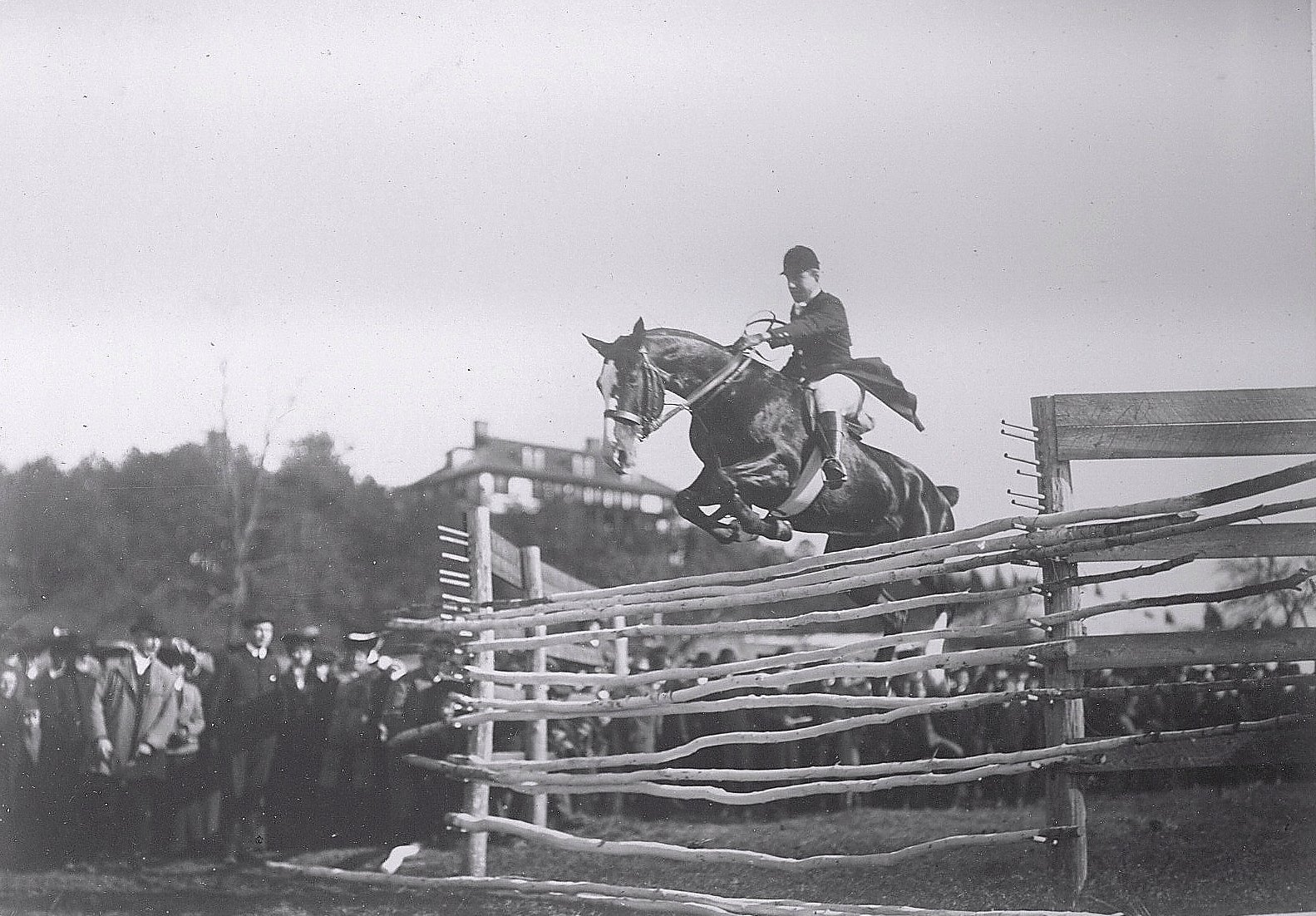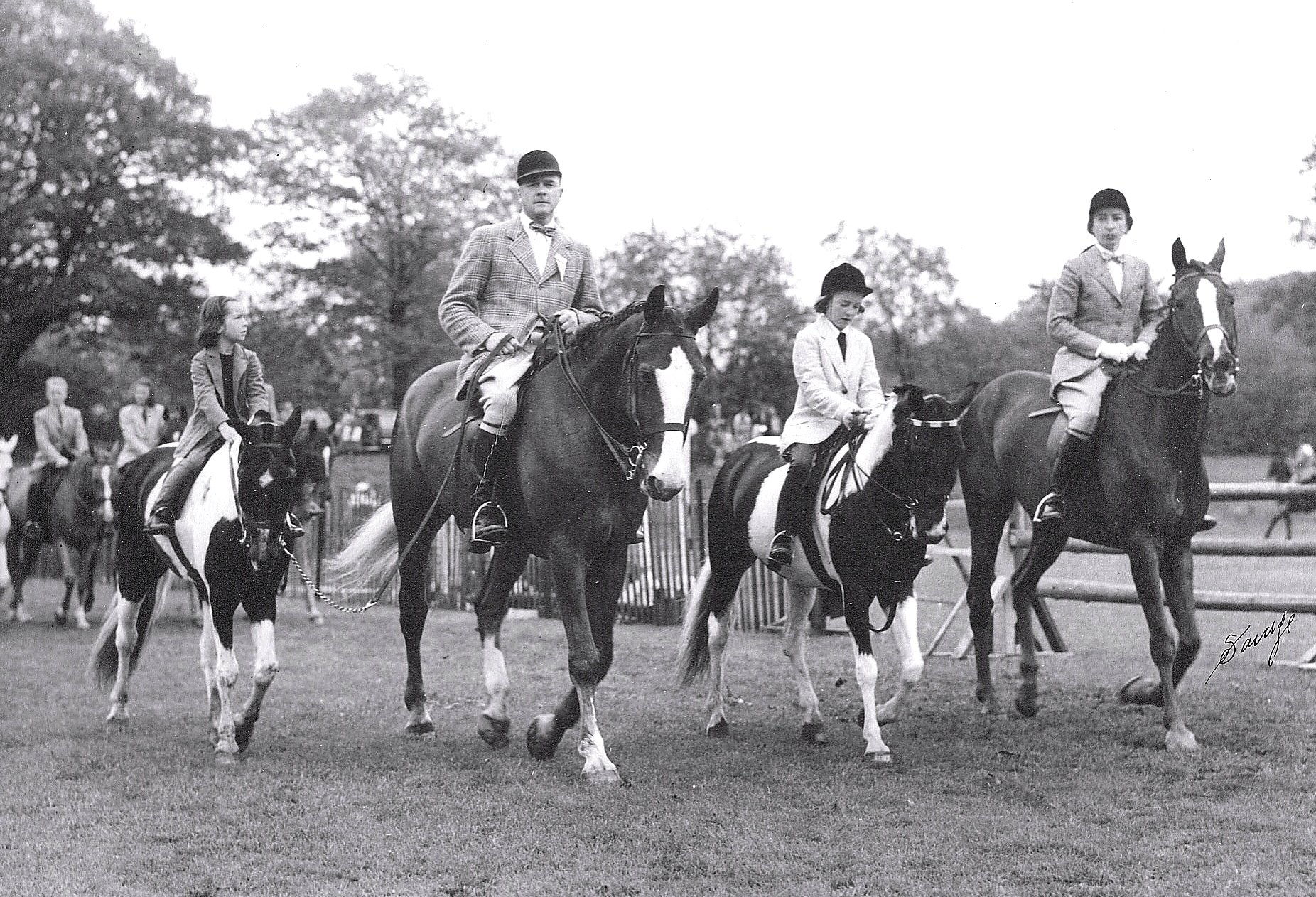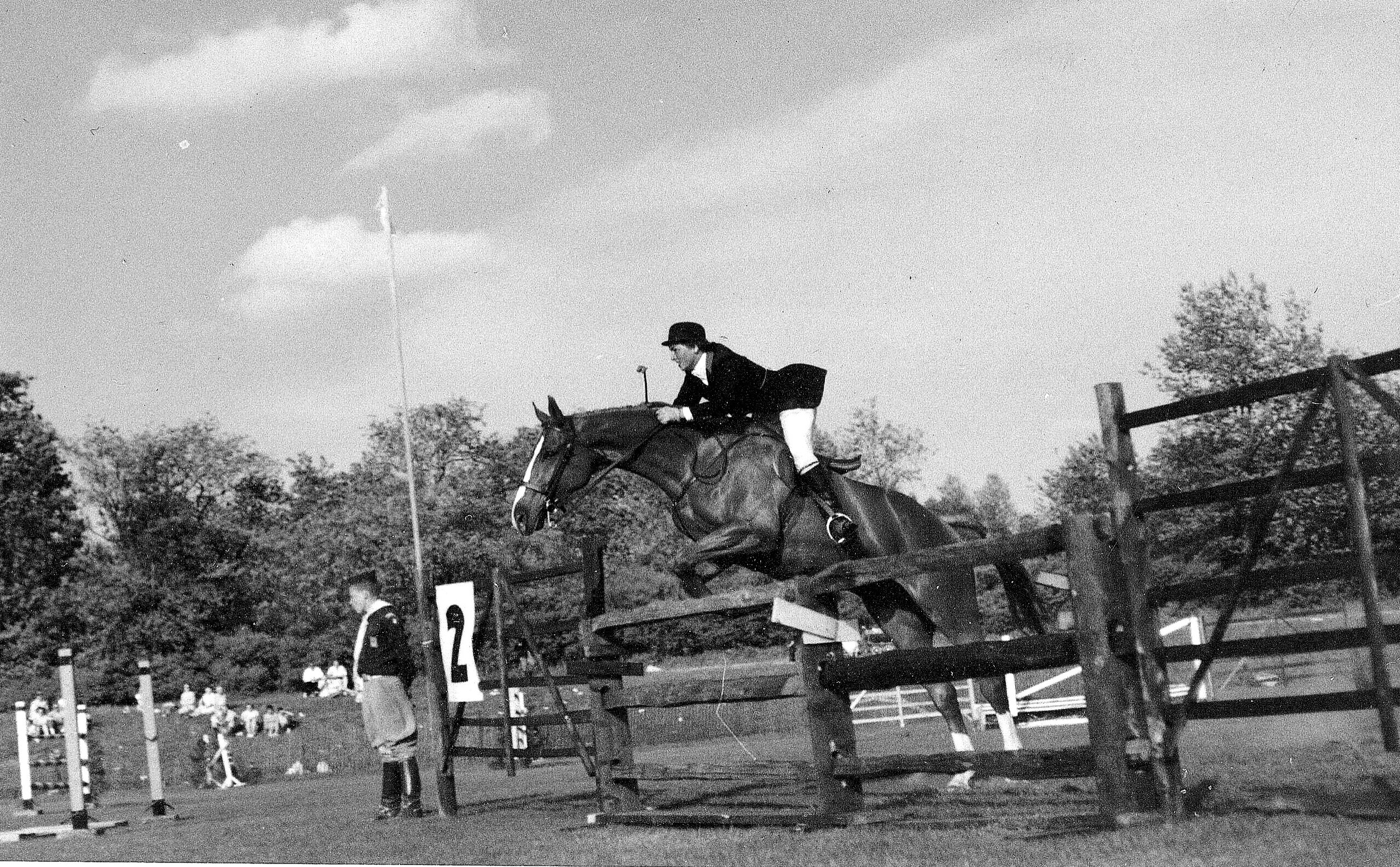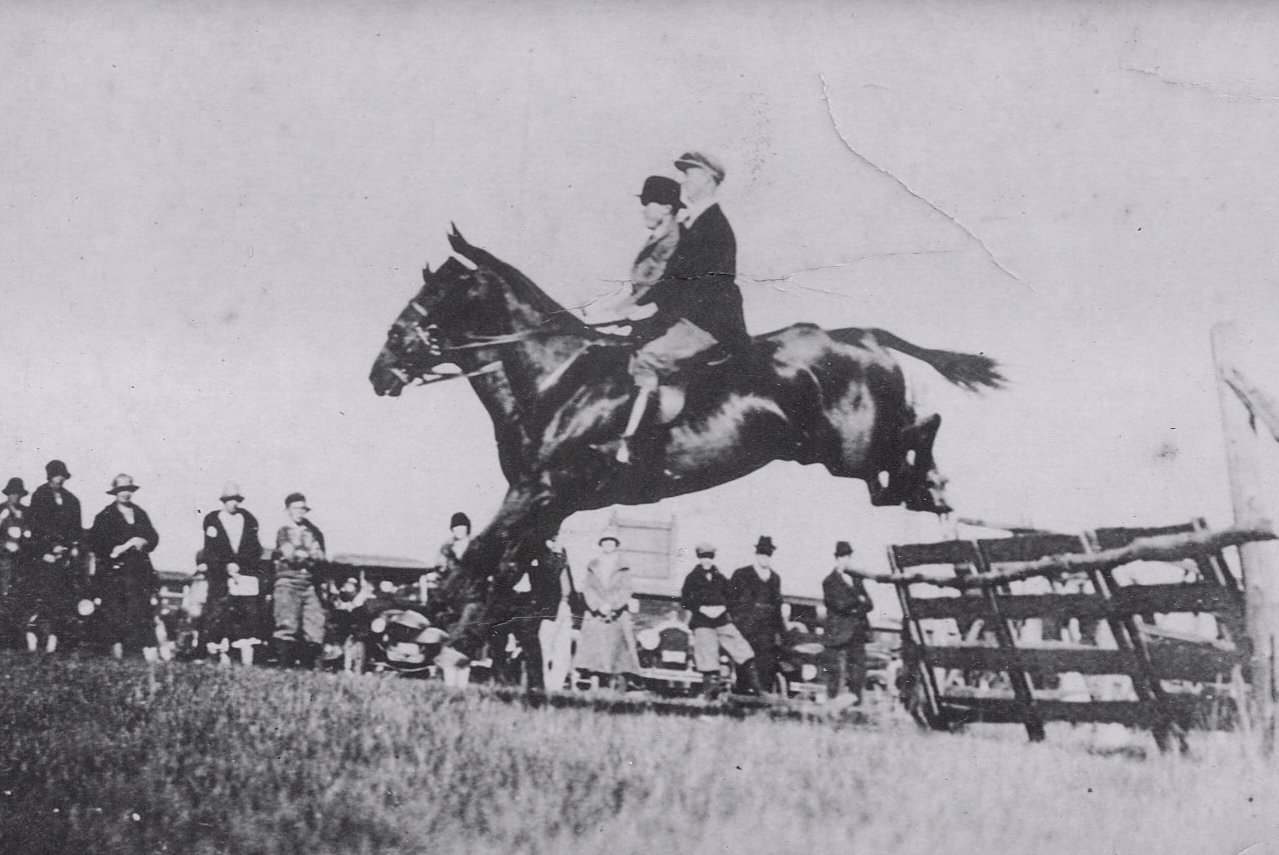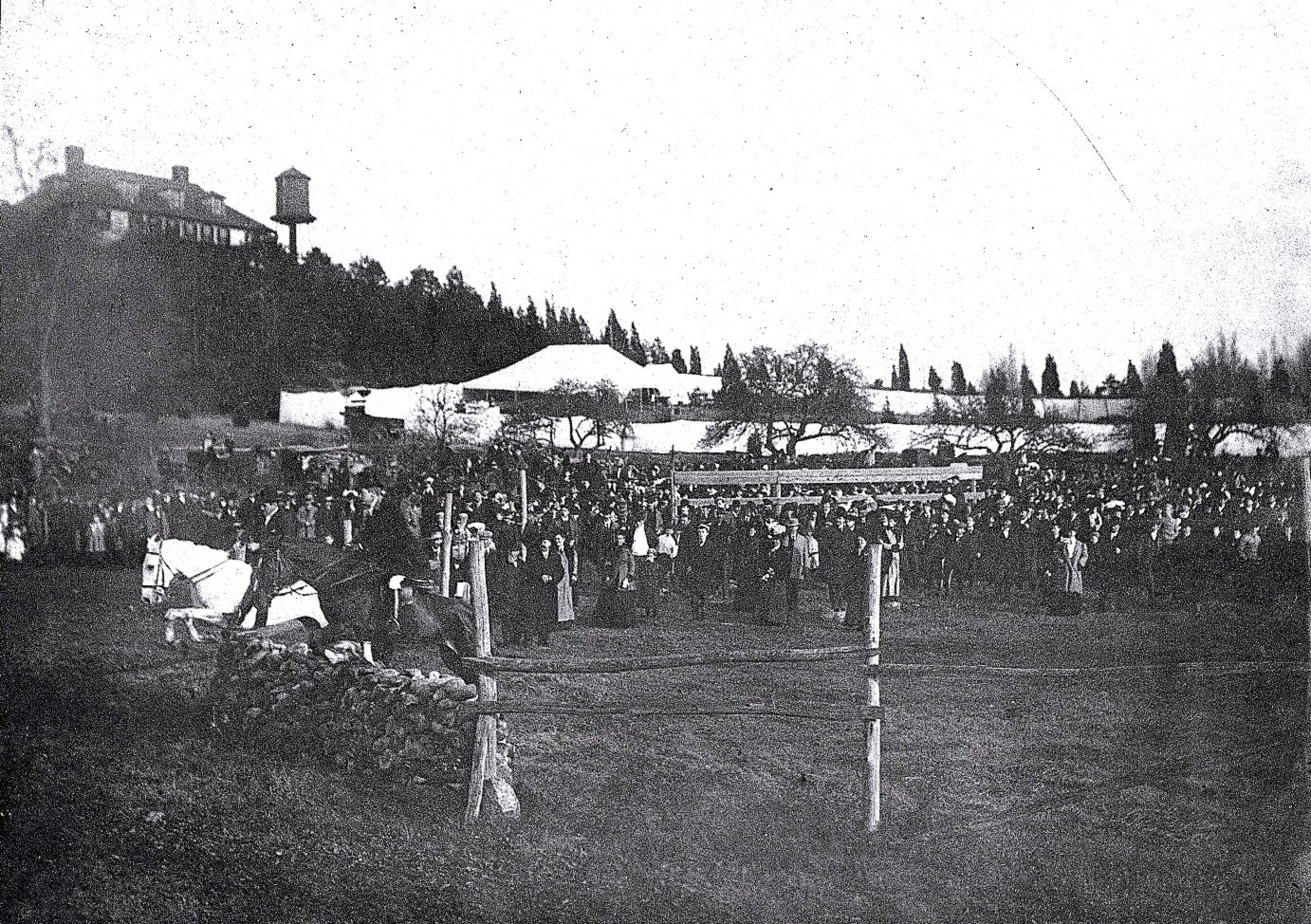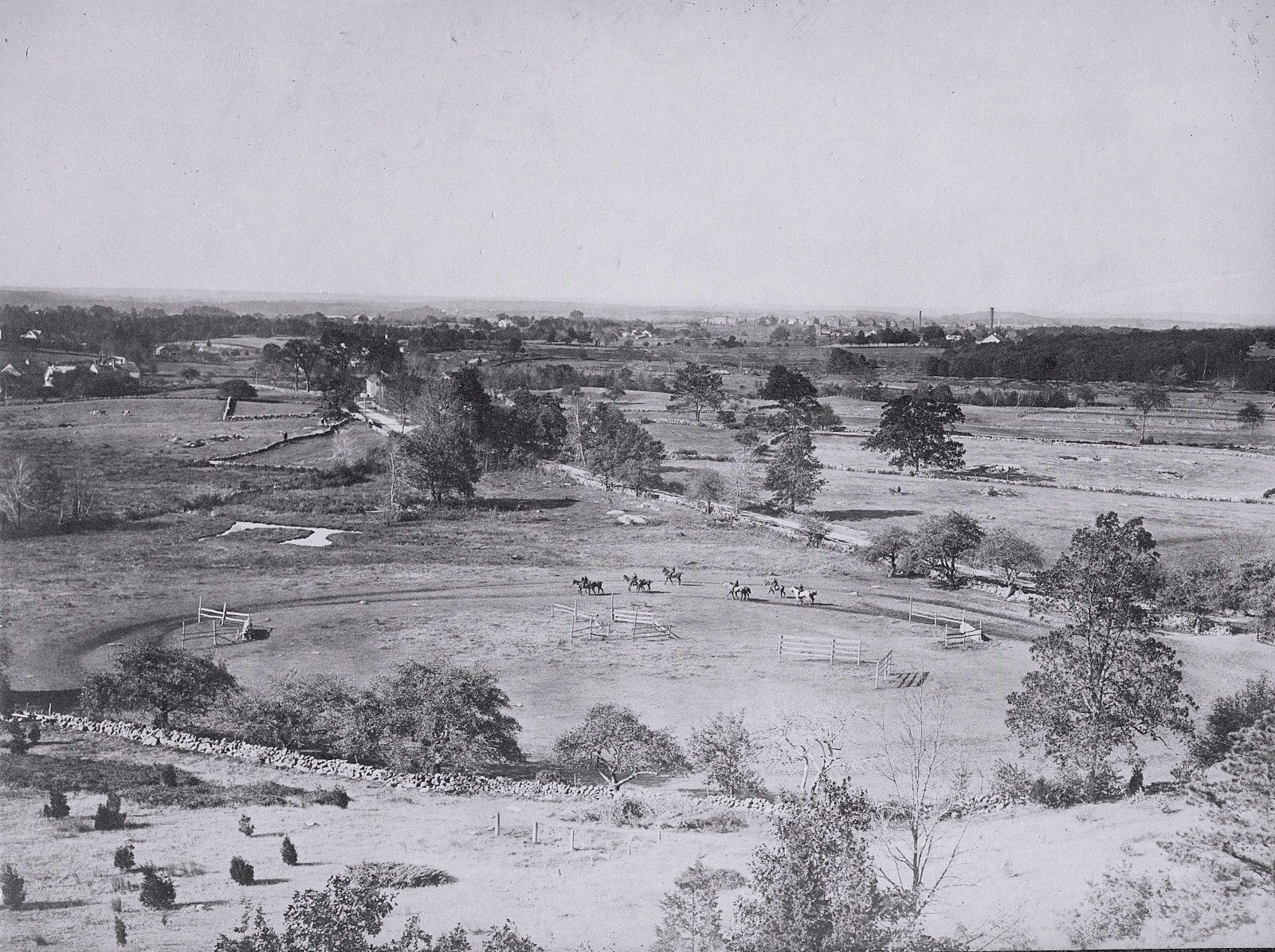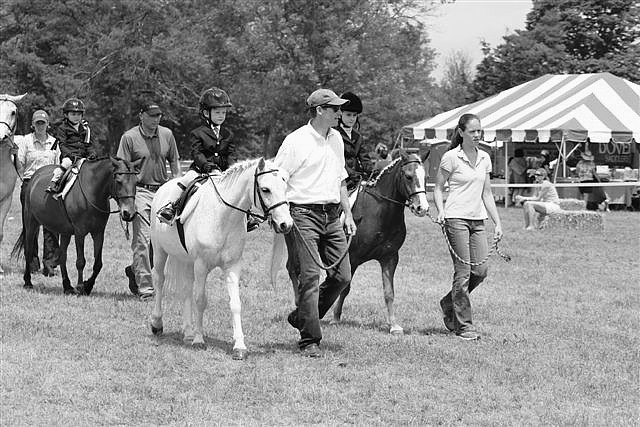The following brief history of the Norfolk Hunt Club was written by David W. Lewis, Jr., ex MFH, former Master of the Norfolk Hunt Club, and editor and historian for the book, "The Norfolk Hunt Club: 100 Years of Sport."
Norfolk was founded in 1895 as an off-shoot of the old Dedham Polo Club, which was also the predecessor of the Dedham Country & Polo Club. The Dedham Polo Club in itself was founded only in 1887, so the members were fairly new to that sport as well and several of them decided to start group cross-country rides in the off-season... in part, as they put it, "so as not to forget the difficult and noble art of horseback riding."
Actually that is not quite as insignificant as it might at first sound, for it really explains why Norfolk has always been a "drag hunt." The great advantage to a drag hunt, as far as the early Norfolk hunters were concerned, was that you could be sure of a good fast run in a relatively short period of time. This was important because most, not all but most, of the early hunters were businessmen, who simply could not afford to devote the 3,4 or 5 hours necessary for a fox hunt in the middle of the week, when what they really wanted to do was ride. Whatever the hounds may have become in later years... and they became quite a lot... at first they really were nothing more than a colorful adjunct.
Gradually the cross-country rides became more formal and it was decided to follow one person. According to Alan Forbes' wonderful book, "Sport in Norfolk County, "Joseph Balch was selected and the method of procedure was as follows: "We would lead him into a promising country, let him loose in a large field, let out a few yells and then chase him." By 1895 the decision was made to get some hounds and make the rides more like a hunt. Joseph Balch was dispatched to the Meadowbrook Hunt on Long Island, where he is reported to have somewhat startled the Meadowbrook Master by requesting "slow hounds... uniformly slow." Apparently that is just what he got, for again, according to Allan Forbes, when he describes the finish of the first hunt: "First came Joseph Balch on Gladys, turning in his saddle and beckoning the hounds to hurry up. Second: a few tired hounds with their tongues hanging out appeared on the scene. Third: John Magee, first whip, attired and looking very grand in his new pink coat; and Fourth: a jumble of riders, hounds, horses, pigs and cows intermingled.
From these humble beginnings Norfolk soon grew into a very grand hunt indeed. Although the hunt had been using the Dover and Medfield country from the very beginning, in 1901 it moved its headquarters to the present location, with the purchase of the farm of Joe and Mary Wardner of the Dover/Medfield border. Kennels, stables, a huntsman's house and a clubhouse were all built at that time and many of the buildings remain in operation today. Henry G. Vaughan became MFH in 1903 and brought great distinction to the Hunt, remaining in that post until 1933, becoming the most senior MFH in the country and the long-time Secretary-Treasurer, and finally President of the Masters of Foxhounds Association.
It is hard to realize today, but the location of the hunt's property was chosen, at least in partm because of its proximity to the railroad. The men, and in the earliest days it was mostly men, not exclusively but mostly, would come out from Boston on the train, spend the night at the clubhouse, hunt early the next morning and then return to Boston that day in time to work. Those who did not promptly return to Boston were known locally as the "never-sweats."
The era of Mr. Vaughan laid a very firm foundation for Norfolk in the area. Even today most of the country hunted was hunted first by Mr. Vaughan. Numerous families first attracted to the Hunt during his era found they liked the area so much they bought land here and made it their second home. Many moved here permanently and have stayed here for generations. The Club has given many, many people a great deal of fun over the years. Long many it continue to do so!!*
*For those interested in learning more about the history of Norfolk, the book "The Norfolk Hunt: One Hundred Years of Sport" is recommended.
